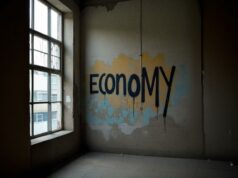By Tony Samson
THERE are just too many variables and events beyond the control of a corporation such as the price of oil, a new regulatory regime, entry of competition, disruptive technology, and rhetorical excesses from the top.
Thus does fate and randomness affect the success or failure in the economy. Especially at risk are conglomerates, the corporate equivalent of empires. Both conglomerates and empires are run by dynasties, as are political positions — we just have a family tradition of public service. Can we help it if people vote us in…with our massive resources at hand?
The Chinese dynasties of old attributed the success and good fortune of empires to what they called the “mandate of heaven”. This mysterious force dispensed success in battles and good fortune to the ruler and his people, with these triumphs used as justification for legitimacy in fending off usurpers and rivals.
Such a heavenly mandate, however, had a downside too. When earthquakes, floods, and famines descended on the country causing hardship and death on the people, they believed that such misfortunes were a sure sign that the mandate of heaven had been withdrawn. This signaled to the masses that they no longer had the right ruler, just the opening that the rivals were waiting for.
This attribution of a divine hand in the fortunes of men is not limited to the ancient (or even modern) East. German sociologist Max Weber, in his 1905 book, The Protestant Ethic and the Spirit of Capitalism, delved into the protestant work ethic to explain the economic growth of Europe and America. The Calvinist belief that worldly success was an indicator of eternal salvation made material wealth something to be diligently pursued and publicly admired. This belief seemed to explain the economic rise of the West.
The supernatural, not necessarily divine, dimension in worldly endeavors is quite pronounced too in our culture. This influence goes beyond religion and combines the oriental mandate from heaven with the Weberian material success as a sign of heavenly favor. It can be argued that the work ethic is Protestant in nature. It can be argued that it is the distrust of wealth and the embrace of poverty and the poor in the Catholic faith that has kept us back as an economic powerhouse.
The idea of the “mandate of heaven” lingers with our taipans who are students of Chinese lore. A string of successes gives an entrepreneur the feeling that he is doing the right thing and heaven (or luck) is smiling on him. But what happens when fortunes are reversed? The trusty cash cow dries up with the entry of cheaper competitors. An acquisition of a large company is mired in a regulatory tangle, leaving the seller in a testy mood. A high-profile court case shuts down the borrowing window of a developer.
Such reverses can be explained as part of the routine ups and downs of doing business. However, as they continue in a succession of failures and losses, the mandate of heaven, first, then the support of stockholders and investors are abruptly withdrawn. The fall becomes a self-fulfilling prophecy.
It is not surprising that taipans are a superstitious lot. They openly embrace feng shui (no harm in being safe) in designing their offices. They have mirrors in strange places which can hardly be reached to check if lettuce has stuck between the two front teeth. They’re up there to ward off bad chi. This superstitious streak is inclusive. The blessing of a new office may feature a priest in the morning and a geomancer in the afternoon.
Even casual observers of the business or political scene see fortune’s reverses as a sign that the leader is losing his Midas touch. Even a minor incident can lead to corporate disaster. Two pieces of luggage lost at the airport would attract media attention and the ire of authorities and very quickly the contractor in charge is summarily replaced.
A string of bad luck is not easily overcome by its victims. Few businessmen have the patience of Job to be able to ride out one misfortune after another. As with the emperors of old, visited with plagues and disasters, it is those being ruled that act, often with astonishing speed.
Tony Samson is Chairman and CEO, TOUCH xda



